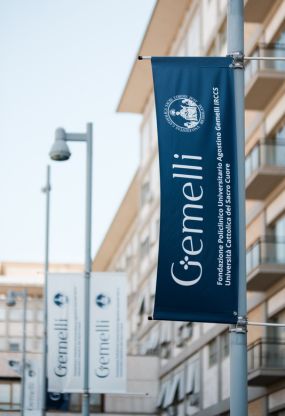Accredited School
The Specialist in Plastic, Reconstructive and Aesthetic Surgery must have acquired theoretical, scientific and professional knowledge in the field of pathophysiology, clinical and therapy of malformations, traumas, neoplasms and all other pathologies that cause morphological and functional alterations. He must be an expert in repairing surgery of the integuments, soft parts and skeleton for morphofunctional purposes. Specific areas of expertise include the treatment of burns in the acute and chronic phase, the physiology and clinic of repair processes, surgical techniques of tissue transfer and plastic, including transplantation of organs and tissues of competence, as well as the biotechnologies underlying the use of biomaterials. The Specialist in Plastic, Reconstructive and Aesthetic Surgery must also have acquired competence in surgical techniques with aesthetic implications and purposes
Basic learning objectives: the learning of in-depth knowledge of pathophysiology, surgical anatomy and operative medicine; the knowledge necessary for the epidemiological evaluation and the classification of clinical cases also through computer systems, the organization and management of health services according to the most recent directives; the acquisition of practical experience necessary for a clinical evaluation of a patient, defining the type on the basis of knowledge of clinical pathology, pathological anatomy, surgical physiology, clinical methodology; knowledge of the medical-legal aspects related to one's profession and the laws and regulations governing health care.
The resident must also acquire the knowledge base necessary to organize and manage his or her activity as a surgeon in relation to the characteristics of the structures in which he or she is called to operate.
Educational objectives of the School typology: the fundamental knowledge of Topographic Anatomy relevant to the objective clinical examination and operative medicine; the principles of asepsis and antisepsis; the problems inherent in the organization and environmental hygiene of operating rooms; knowledge of surgical instruments and suture materials as well as traditional and alternative surgical techniques and methods; a basic knowledge and the related practical experience, necessary to define and personally verify, on the basis of the overall assessment of the disease and the patient, a correct definition of the pathology in individual patients and the indication of the type of treatment, medical or surgical, most suitable according to the risks, benefits and results for each individual patient; be able to address and solve problems related to the setting and management of the immediate postoperative course and remote controls; On the basis of an overall assessment of the disease and the patient, having acquired the basic anatomical-surgical knowledge and operative medicine, be able to personally deal with the execution of emergency surgical acts. In particular, the student will have to acquire specific skills in the field of plastic-reconstructive surgery, in the pathophysiology and clinical in plastic surgery and in the application of advanced, microsurgical and minimally invasive surgical methodologies in the reconstructive field.
Related or supplementary objectives are : the acquisition of the basic knowledge and experience necessary to diagnose and treat, even surgically, the most frequently encountered pathologies of specialist competence in plastic, reconstructive and aesthetic surgery (general, thoracic, vascular, pediatric, urological, gynecological, orthopedic, traumatological, ophthalmology, neurosurgical, maxillofacial, otorhinolaryngology) or characterized by the non-postponement of emergency treatment; the ability to recognize, diagnose and set up treatment, defining in an overall view the priority in cases of pathology or multiple lesions, in patients who require the necessary use of specialists in the cases mentioned above.
The following are compulsory professionalizing activities to achieve the goals of the type: - at least 50 major surgery operations, 10% of which as the first operator. The rest as a second operator; - at least 100 medium-sized surgeries, of which 25% as the first operator. The rest as a second operator; - at least 250 minor surgeries, 40% of which are the first operator (laparoscopic surgery procedures as well as outpatient and D.H. procedures are included). The rest as a second operator; - have provided direct and responsible assistance, with related diagnostic and therapeutic acts in an adequate number of elective, critical and emergency/urgency patients.
The resident must have provided direct assistance for a total of 3 semesters in general surgery, emergency surgery and first aid, anesthesia and resuscitation and in the specialized surgeries provided for by the system according to the procedures defined by the School Council.
The resident must have participated in the conduct, according to the rules of good clinical practice, of at least 3 controlled clinical trials. He will be able to compete for the diploma after completing the surgical activity.
The elective characterizing activities chosen by the student are those useful for the acquisition of specific and advanced knowledge in the field of Specialization. Within the scope of the competences of Plastic, Reconstructive and Aesthetic Surgery, elective activities can be carried out in: • Emergency surgery • Oncological surgery • Hand and limb surgery • Microsurgery • Cranio-Maxillofacial surgery • Burnology • Cosmetic surgery Professional activities must be at least 70% of the total credits assigned.




